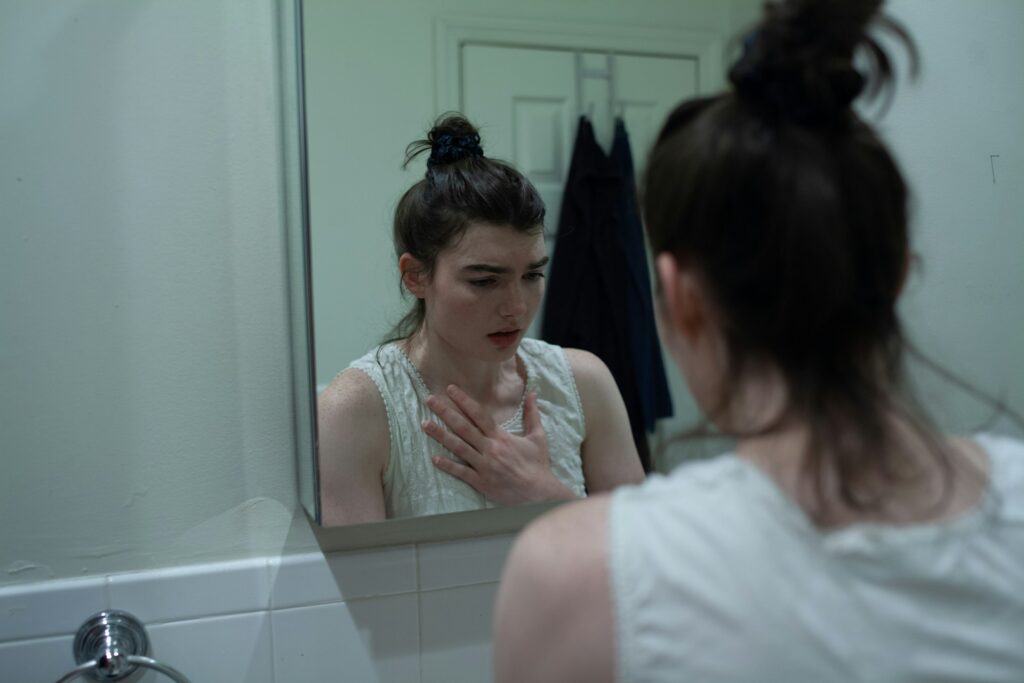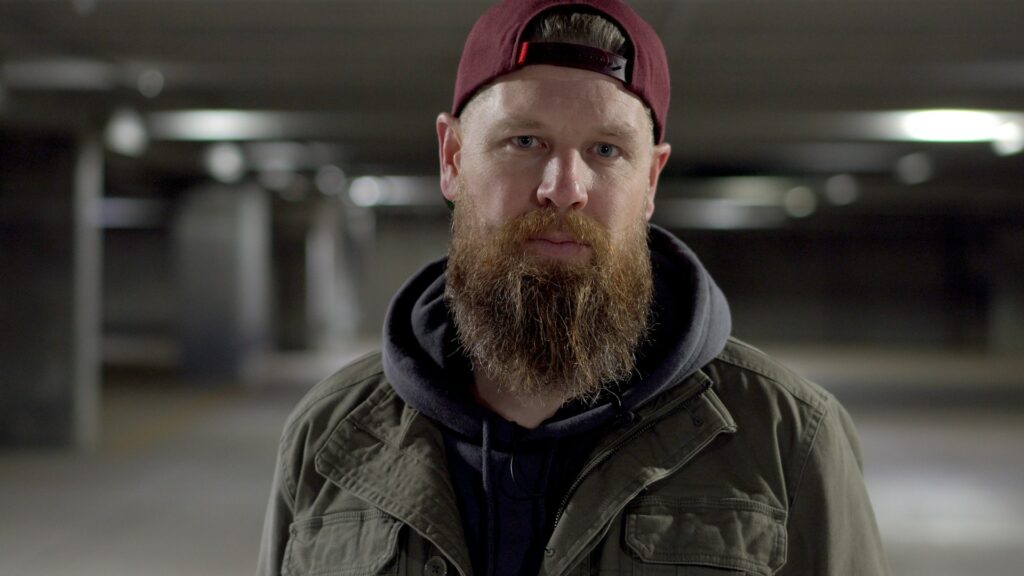Depression doesn’t always make someone cry or even feel overly sad in a way they can easily identify.

However, if you know what you’re looking (or rather listening!) for, you’ll realise that it comes through in quiet, offhand comments that sound casual but carry a deeper weight. If someone you care about keeps saying things like these, they might be struggling more than they let on. Here are some common phrases those with this mental health issue tend to say.
1. “I’m just tired, that’s all.”

This might sound like they’ve had a long day, but when it’s said over and over again, and no amount of sleep helps, it usually means more. Emotional exhaustion gets brushed off as physical tiredness because it’s easier to explain. If they never seem rested, even after a weekend of doing nothing, that’s often a red flag. Tiredness is sometimes code for overwhelmed, hopeless, or quietly shutting down.
2. “I don’t really care anymore.”

At first glance, this can seem like frustration or apathy, but it’s often something heavier. When someone starts disconnecting from things they used to care about, it’s a sign they might be giving up on feeling better. That kind of detachment isn’t just about one situation; it usually points to a broader loss of motivation, hope, or emotional energy. It’s not indifference—it’s depletion.
3. “What’s the point?”

This one’s small but heavy. It can slip into conversations about work, goals, routines, or life in general. It’s a clear marker that they’re struggling to find meaning in things they used to find normal or worthwhile. It’s not always dramatic. Sometimes it’s said with a shrug or a laugh, but underneath, it usually means something deeper has gone flat inside them, and they don’t know how to spark it again.
4. “I’m fine” (when it’s obviously not true).

This one’s classic, and easy to miss because they say it so often. The thing is, when “I’m fine” becomes a default answer to everything, especially when their behaviour says otherwise, it’s usually a way of deflecting. People use this one when they don’t feel safe opening up, don’t have the energy to explain, or don’t believe it’ll help. It’s often more about hiding than healing.
5. “I just want to disappear for a while.”

They don’t necessarily mean they want to die—they mean they want to stop existing for a bit. To escape the pressure, the exhaustion, the noise of daily life. It’s a quiet cry for pause, not always for help. When someone says this, they’re likely feeling overwhelmed and invisible at the same time. It’s less about drama, and more about desperately needing a break from the weight they’re carrying.
6. “I’m not good at anything.”

This sounds like low self-esteem on the surface, but it often runs deeper. Depression distorts perception; it makes people forget their skills, discount their progress, and minimise everything they’ve done well. When someone says this repeatedly, it’s usually not for reassurance. It’s because they genuinely can’t see their value anymore, and that’s a painful place to be stuck in.
7. “I don’t want to be a burden.”

This one comes from people who are used to hiding their pain. They’re afraid that by speaking up, they’ll push people away, or that their struggles will be seen as “too much.” It often points to isolation, shame, and a belief that their pain is something other people shouldn’t have to deal with. In reality, saying this is often a soft way of asking for comfort without saying the words.
8. “Everyone’s better off without me.”

This crosses into dangerous territory. It’s not always a direct statement of suicidal thoughts, but it’s often a reflection of how worthless someone feels. If they truly believe this, they might not be in a safe place emotionally. It’s not something to brush off. Even if it’s said offhand or with a joke, it usually means they’ve been sitting with some very dark thoughts, and they’re starting to believe them.
9. “I don’t really feel anything anymore.”

When emotions flatline, it’s not always a relief—it can be terrifying. Numbness is a common part of depression that often goes unrecognised because it doesn’t look like sadness or crying. People describe it as feeling like a shell, going through the motions, or just being blank. It’s a sign that their emotional reserves are running low, and they’ve disconnected to survive.
10. “I’ve just been really busy.”

Sometimes this is true. but often, it’s a smokescreen. People with depression use busyness as a way to avoid hard conversations or to keep people from noticing how much they’re struggling underneath. If they always say they’re busy but nothing seems to change, or if they’ve pulled away socially without a clear reason—it might be more than a packed calendar. It might be a silent battle with energy, focus, and emotional bandwidth.
11. “I’m just being dramatic.”

This often follows moments of honesty, when someone shares something hard, then immediately downplays it. It’s a way of protecting themselves from judgement or rejection. However, when someone calls their own pain dramatic, it usually means they don’t feel entitled to their emotions. Depression makes people second-guess even their most valid feelings.
12. “It doesn’t matter.”

Whether it’s about work, plans, goals, or relationships—when someone repeatedly says things “don’t matter,” it’s often a sign of depression’s emotional shutdown. It can sound casual, but it’s usually a mask for hopelessness. Their detachment isn’t peace—it’s checked-out. It means they’ve stopped expecting joy, change, or connection to feel worth the effort.
13. “I’m just not myself lately.”

This one’s quiet but revealing. It often comes from people who know something’s off but don’t have the words or emotional energy to fully describe it. They feel disconnected from who they were, or who they think they should be. It’s a soft sign that they’re slipping into a space that doesn’t feel right, and they’re trying to understand it without spiralling. Listening matters more than fixing here.
14. “I don’t even know what I want anymore.”

Depression clouds decision-making. It erases clarity and motivation. When someone starts saying they don’t know what they want, it’s not because they’re indecisive. It’s because they’re numb or overwhelmed. That disconnection from goals, preferences, or desires often leads to passivity or self-neglect. It’s a subtle sign that they’re fading into autopilot because nothing feels worth choosing anymore.
15. “I just need to get my act together.”

This sounds productive on the surface, but it often comes from a place of self-blame. It’s said by people who are struggling but feel like they’re the problem, not their mental health. It’s a subtle way of saying, “I’m not okay, but I think I’m supposed to be.” Depression convinces people they’re lazy, weak, or broken when they’re actually burned out, depleted, or quietly suffering.


